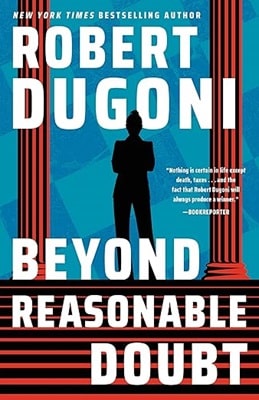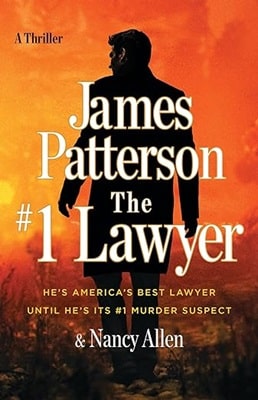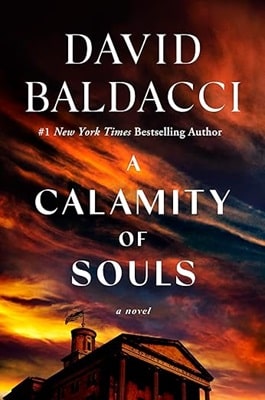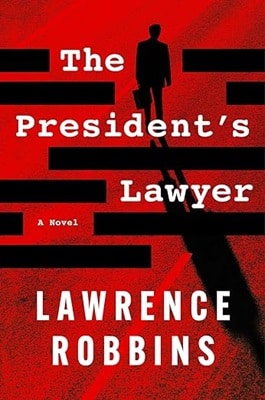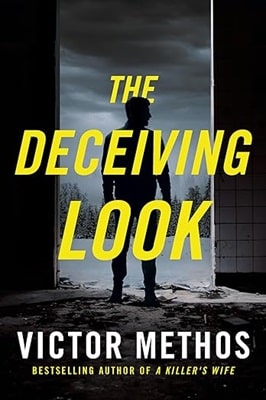
Feature
Stranger Than Fiction
Washington, D.C. is located at the intersection of power and crime.
Politics is about power. Politics is about control. Although it is certainly true that politics can make good government, it is also unfortunately true that politics can breed the worst in the men and women who run the show in the most powerful and richest nation in the world.
And one does not have to look far to understand how it is that writers find politics and the players in Washington such inspirational targets for fiction. The true stories that come out of our Capital make the most enticing foundations for fiction.
Consider the following:
CHANDRA LEVY
On May 22, 2002, a man walking his dog in Rock Creek Park in upper Georgetown, Washington, D.C., stumbled across skeletal remains in a forested area that were later identified as those of Chandra Levy, an intern with the Federal Bureau of Prisons who had been missing for more than a year.
Levy was due to return to her home in California for college graduation ceremonies; when she failed to do so, her parents contacted authorities. Police searched Levy’s apartment and found money, credit cards, her packed luggage and no signs of a struggle.
During the course of their investigation, the police also discovered that Chandra Levy had a “relationship” with California Congressman Gary Condit. Initially, Condit said Levy was a “good friend,” but police found Condit’s DNA on clothes in Levy’s apartment, and in July of 2001, he admitted to investigators that he had an affair with Levy.
After a preliminary autopsy, District of Columbia police announced there was sufficient evidence to open a homicide investigation.
Ingmar Guandique, an undocumented immigrant from El Salvador, came to the attention of police in 2001 and he was considered a person of interest in Levy’s murder. In 2009, he was charged and convicted of murdering her, but the verdict was later overturned due to prosecutorial misconduct.
Officially, Levy’s murder remains unsolved.
_____________
The Levy murder could be mined for an almost endless number of plots. The obvious one being that she was murdered to keep her quiet about the affair. But more intriguing…perhaps she discovered underhanded dealings in contracting by the Federal Bureau of Prisons. The largest private prison companies net billions by contracting with federal, state and local governments. People have been killed for less. A sub-plot looking in to the misconduct of prosecutors, who used the false confession of a cellmate of Guandique, also offers an enticing avenue for exploration.
CONGRESSMAN BARNEY FRANK
Rep. Barney Frank, a Congressman from Massachusetts, met Steve Gobie through an “escort-model” advertisement in the Blade publication that served Washington’s gay community. Initially, their contact was purely transactional with Frank paying Gobie for sex. Over time a relationship matured and Frank attempted to help Gobie, a felon, who had been convicted of cocaine distribution and various sex crimes, turn his life around.
Frank hired Gobie as a “personal assistant” to do housework and be his chauffeur. He also allowed Gobie to live in his apartment when he was out of town. Gobie showed his gratitude by using the apartment as home base from which he ran a male prostitute, or “call boy” ring.
An article in the Washington Times disclosed the operation and revealed that key figures in the Reagan administration as well as prominent Washington lobbyists patronized the call boy operation.
This tawdry tale could be the jumping off point for plotlines rife with blackmail and extortion. Congressman Frank was chairman of the House Banking Committee which overseas the Federal Reserve, the Treasury Department, the Securities and Exchange Commission and most other federal financial regulators. The opportunities for creating a world of mischief are especially tantalizing given the pathway into the nation’s financial industry, and the possibilities of obtaining insider information on market activities. Washington is also home to a large and very influential diplomatic community. Drawing these men and women into the tale could provide plotlines brimming with espionage and international intrigue.
TOM BARNES
Tom Barnes, a 25-year-old Senate staffer, was low on coffee, so he left his rowhouse about six blocks east of the U.S. Capitol and headed for a local market.
On his way, he was approached by a group of teenagers. One of them threatened to “bust a cap” in Barnes if he didn’t hand over some money. Barnes dismissed the threat and started walking away when he was shot behind the left ear. After four days in a coma, he died.
“It sent shockwaves through my office,” said Barnes’s employer, Senator Richard Shelby of Alabama. “He had a wonderful life ahead of him, a lot of promise. What a senseless killing.”
Shelby’s subsequent championing of the death penalty referendum angered many D.C. residents who were resentful of outsiders controlling the District’s affairs. The referendum failed but violent crimes unfolding in Washington at the time shaped the creation of one of the toughest crime and sentencing measures ever passed by Congress. The Violent Crime Control and Law Enforcement Act of 1994 expanded the death penalty and created a controversial “three strikes” policy, in which violent offenders with two previous convictions would get mandatory life sentences.
______________
This truly tragic tale could be the jumping off point for a political novel about a society that was—and remains—fraught with racial tension. It also has the potential to delve deeply into the many, and still lingering, resentments of a largely African-American community in Washington that is governed by an overwhelmingly White Congress. Although the citizens of the District have a right to elect a mayor and city council, Congress retains the right to review and reject laws passed by the council. The Barnes murder shined a light on various aspects of this arrangement and a creative writer could mine the tragedy for a serious look at the tensions wrought by social and racial politics.
“Power corrupts. Absolute power corrupts absolutely.” Cautionary words from Lord Acton, the 19th century politician, warning that too often a person’s morality recedes as their power increases. And that is the appeal for writers who focus their storytelling on politics.
About the Author
John David Bethel is the author of award-winning novels, Unheard of and Holding Back the Dark. Other published novels include Little Wars and Wretched. He has also been published in popular consumer magazines and respected political journals.
Mr. Bethel spent 35 years in senior position in politics and government. He served as Senior Adviser/Director of Speechwriting for the Secretaries of Commerce and Education; Editorial Director for the U.S. Small Business Administration; and Assistant Administrator for the U.S. General Services Administration’s Office of Communications and Citizen Services. Bethel also worked as press secretary/speechwriter to Members of Congress.
Mr. Bethel is a senior consultant for a number of prominent communications management firms, including Burson Marsteller and The Wade Group.
He graduated with Phi Beta Kappa honors from Tulane University and lives in DeLand, Florida.

More Political Thriller Features
Political Thrillers for Independence Day
4th of July Political Thrillers
The Art of a Political Thriller
To recipe or not to recipe?
Stakes and the Political Thriller
The allure of the political thriller lies in who might suffer




